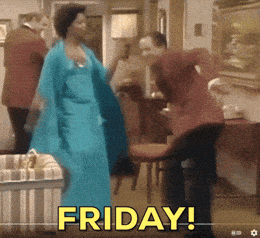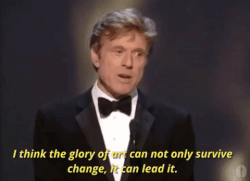- Amplified
- Posts
- From Free Speech Fights to Fan Wars
From Free Speech Fights to Fan Wars
Politics, pop stars, and protest orders — different arenas, same lesson: own the story or lose it.

Happy Friday, Amplified Family!
This week’s stories all come back to one question: who controls the frame? From Pam Bondi and JD Vance turning grief into a free-speech fight, to Brandon Johnson claiming constitutional high ground in Chicago, to Trump inventing a “Midterm Convention” out of thin air — the throughline is simple.
Power isn’t just about what happens, it’s about how it’s told. Even pop culture gets in on it, whether it’s Swift weaponizing polarized reviews or The Summer I Turned Pretty turning fan wars into free promo.
Let’s get into it.
If a friend forwarded this to you, thank them for being smarter than your other friends — then subscribe.
MAGA Gets the Mic, Kimmel Gets the Muzzle

Jimmy Kimmel has spent years as one of late night’s sharpest political voices, skewering both parties but especially Trump-era Republicans. After Charlie Kirk’s assassination, Kimmel opened his monologue by pointing out how quickly MAGA figures tried to turn the tragedy into political capital. The jokes landed with his audience but sparked outrage among affiliates.
Nexstar, the country’s largest station group and a key ABC partner, yanked the show from dozens of markets. The FCC piled on, calling Kimmel’s comments offensive and hinting at possible regulatory consequences. Within days, ABC suspended Jimmy Kimmel Live! indefinitely. What began as a single monologue turned into a national free speech flashpoint.
Critics argue the network folded under political pressure rather than defending its talent. The German journalists’ union even weighed in, warning that pulling Kimmel sets a dangerous precedent for media independence. Supporters of the suspension claim late night comedy crossed a line into partisanship and insensitivity.
What it Means:
Kimmel’s suspension is not about taste or tone. It is about censorship. When broadcasters and regulators can combine to sideline a comedian for political commentary, it signals a dangerous erosion of free speech and sets a precedent that will reach far beyond late night.
The Play:
Do not accept this as normal. Networks must stand up for their talent, journalists must call this what it is, and the public must recognize that every suspension like this makes it easier to silence the next voice. The fight here is not about jokes. It is about whether free expression survives sustained political pressure.
Chicago to Feds: Read the First Amendment Before You March In

Brandon Johnson didn’t just react to federal threats of sending troops into Chicago. He reframed the whole fight before it even started. His “right to protest” order positioned the city not as rebellious, but as a constitutional defender. That’s a savvy move: instead of clashing with Washington, Johnson cast himself as protecting citizens from government overreach.
Chicago has history here from civil rights to labor marches to 1968. Johnson tethered his move to that lineage without saying it outright, giving the city credibility as the place where protest equals democracy.
The Move: Frame early, frame big. Whoever defines the fight first gets to wear the “protector of democracy” mantle.
"The political core of any movement for freedom in the society has to have the political imperative to protect free speech."
Pam, JD, and the First Amendment Fumble

When Charlie Kirk was killed, the Trump administration had a choice: condemn violence and steady the temperature, or escalate. Attorney General Pam Bondi chose escalation, vowing to prosecute “hate speech” — a phrase with no standing in U.S. law. Vice President JD Vance went further, telling supporters to “call their employer” if someone mocked Kirk’s death online.
The result? The administration reframed itself as punitive and sloppy. Instead of mourning Kirk, the story became about state-sanctioned cancel culture and mob intimidation. What should have been a clean message about safety turned into a speech-policing spectacle.
The implications go beyond PR missteps. There’s no hate speech exception under the First Amendment. Employer-shaming chills lawful expression, disproportionately harming people with the least power. And globally, this undercuts America’s claim to champion free speech.
The Play: In a crisis, protect both safety and freedom. Condemn violence, prosecute threats, but never confuse offensive speech with criminal speech.
 Pop Idols vs. Pop Algorithms: Pick Your FighterAKB48 is a pop group turned pop culture institution in Japan. With dozens of rotating members and a fan culture that treats voting as part of the fandom, they’ve been shaping what pop-star branding looks like for almost two decades. This month, they gave their fans a strange new choice: vote for the group’s next single to be written either by a human composer or by artificial intelligence. The whole stunt looked like a gimmick. But it quickly became bigger than AKB48. Fans weren’t just picking a song, they were arguing over what creativity even means. Is authenticity more valuable than novelty? Can something coded still count as art? That debate kept the group squarely in the middle of a global conversation. And by being transparent about the AI process, AKB48 gave the vote legitimacy. But here’s the trade-off: once you hand over power, you can’t get it back. The Play: Letting your audience decide builds trust. Just remember — when they write the ending, you’re stuck with it. |  Team Conrad vs. Team Jeremiah: Streaming’s Free Marketing MachineAmazon’s teen drama The Summer I Turned Pretty wrapped its latest season with the conclusion of a long-running love triangle. The main character, Belly, finally chose between two brothers — Conrad and Jeremiah. That choice split the audience. Some fans swooned, others were furious. The hashtags tell the story: #TeamConrad vs. #TeamJeremiah. From a PR perspective, this is gold. Streaming thrives on emotional intensity. Every TikTok breakdown, every fan edit, every angry Instagram post keeps the show trending long after the finale aired. Instead of trying to smooth over the division, Amazon leaned into it. They released behind-the-scenes clips, cast interviews, and teaser hints about the next season — keeping both sides engaged, even if half were mad. What looks like chaos is actually the marketing engine. Fan wars aren’t a liability, they’re free advertising. The angrier the debate, the longer the show stays in the feed. Why It Matters: Passionate audiences extend a show’s life far beyond the finale — even when half of them are outraged. |
 Hollywood’s Last Gentleman Gets the 24-Hour Memorial TreatmentWhen Robert Redford passed, Hollywood didn’t wait. Tributes rolled out immediately. Studios curated highlight reels. Platforms pushed “Redford collections.” It was heartfelt — but it was also business. Legacy is a commodity, and grief sells. The first 24 hours after a death define the narrative. Redford was locked in as an icon and environmentalist before any critiques could surface. That’s how legacy PR works: get the frame out fast, and history rarely changes it. The Play: In Hollywood, legacy isn’t inherited. It’s managed. Whoever speaks first shapes how someone is remembered. |  Taylor Swift: Queen of Owning Both the Roast and the RaveTaylor Swift dropped her eleventh studio album, The Tortured Poets Department, and critics couldn’t agree on anything. Some hailed it as a vulnerable, experimental masterpiece. Others panned it as self-indulgent and bloated. The reviews were brutal and glowing in equal measure. Most artists would panic. Swift didn’t. Her team knew exactly what to do: amplify everything. Negative reviews became memes, rallying fans to defend her. Positive reviews were pushed as proof she’s still untouchable. The split itself became part of the marketing. Swift has mastered this cycle. Every critique is fuel for her fans, every rave is ammunition for her PR team. Instead of hiding from polarization, she turns it into momentum. Takeaway: Polarization isn’t a weakness for Swift — it’s the plan. She thrives on it. |
Until next time,
